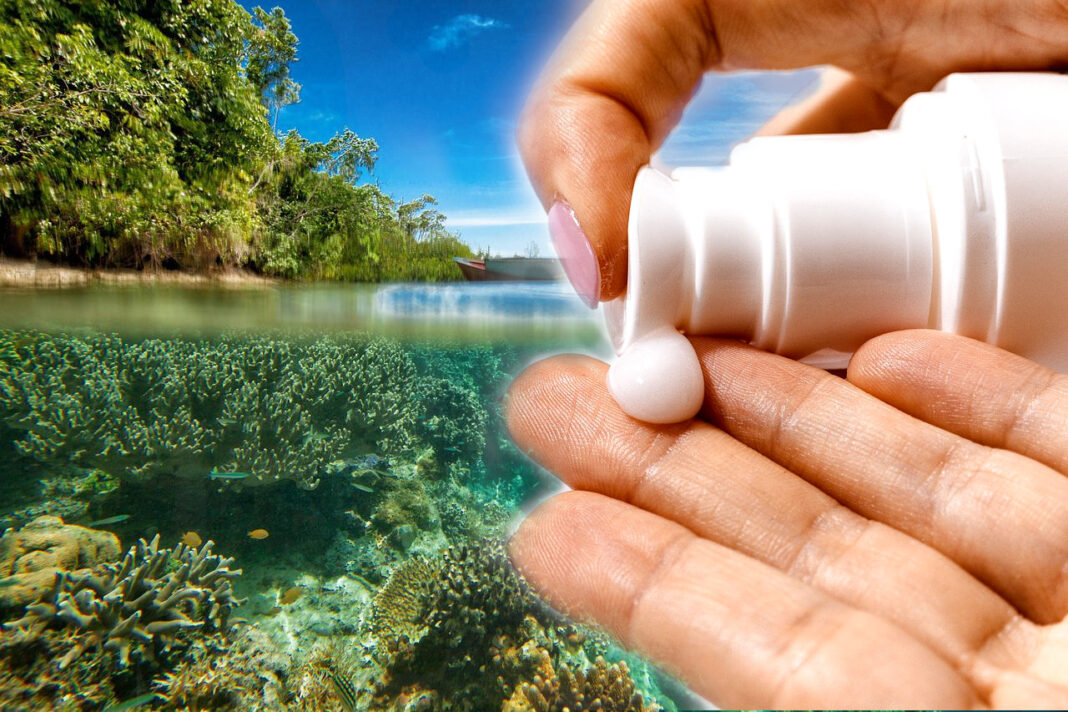UV filters used in sunscreen products negatively affect corals and possibly contribute to regional trends in coral decline. In some destinations, the use of sunscreen has been banned because of this. Bans were implemented on several organic UV filters and sunscreen products in different locations including Hawaii, the U.S. Virgin Islands and Palau. This included banning the widely used oxybenzone and octinoxate, while promoting the use of inorganic filters such as zinc oxide even though their toxicity towards aquatic organisms had been documented previously.
Why are sunscreens dangerous to corals?
In the new study, scientists at Stanford University in Stanford, CA, found that oxybenzone is converted from a UV blocker to a “phototoxin” inside the cells of anemone and coral. A photoxin is a chemical that becomes toxic when exposed to sunlight. Algae that live in the coral provide some protection against the toxins. Algae absorb toxins and then die.
Corals without algae are easily susceptible to damage and most will eventually die. This may mean that bleached coral is more vulnerable to chemicals. A study was conducted that involved anemones exposed to oxybenzone. The anemones gradually lost all their algae. Anemones that lacked algae had higher mortality rates in the presence of oxybenzone, and their tissues contained higher concentrations of phototoxins.
A deadly combination
Coral reefs are already facing a major threat from a warming climate. When this factor is combined with the toxic substances from sunscreens, it creates a deadly combination that leads to even faster coral death.
“The finding that oxybenzone sunscreen is more toxic to these bleached anemones could suggest that it’s also more toxic to bleached corals, and that it would actually exacerbate these negative effects of warming … in the areas where you have human activity around,” first author and Ph.D. candidate Djordje Vuckovic told the Science podcast.
Ongoing research could lead to the development of UV filters that will be gentler on corals and the marine environment. Many sunscreens on the market already contain mineral filters instead of chemical filters. These alternative ingredients haven’t undergone proper scrutiny, and the wider impacts of sunscreen components on marine and freshwater environments are still largely unknown.
In conclusion
Due to the mass bleaching of corals around the world, it is important to take the right approach to their protection. It is important not to use sunscreens containing oxybenzene and other dangerous substances. For now, sunscreens with mineral filters are a suitable alternative.
Source:
https://www.science.org/content/podcast/staking-out-start-anthropocene-and-why-sunscreen-bad-coral
https://enveurope.springeropen.com/articles/10.1186/s12302-021-00515-w
https://news.stanford.edu/2022/05/05/coral-killing-sunscreens/
https://www.medicalnewstoday.com/articles/oxybenzone-in-sunscreen-what-experts-think-of-its-effects-on-coral-reefs
Photo credit: Pixabay

















